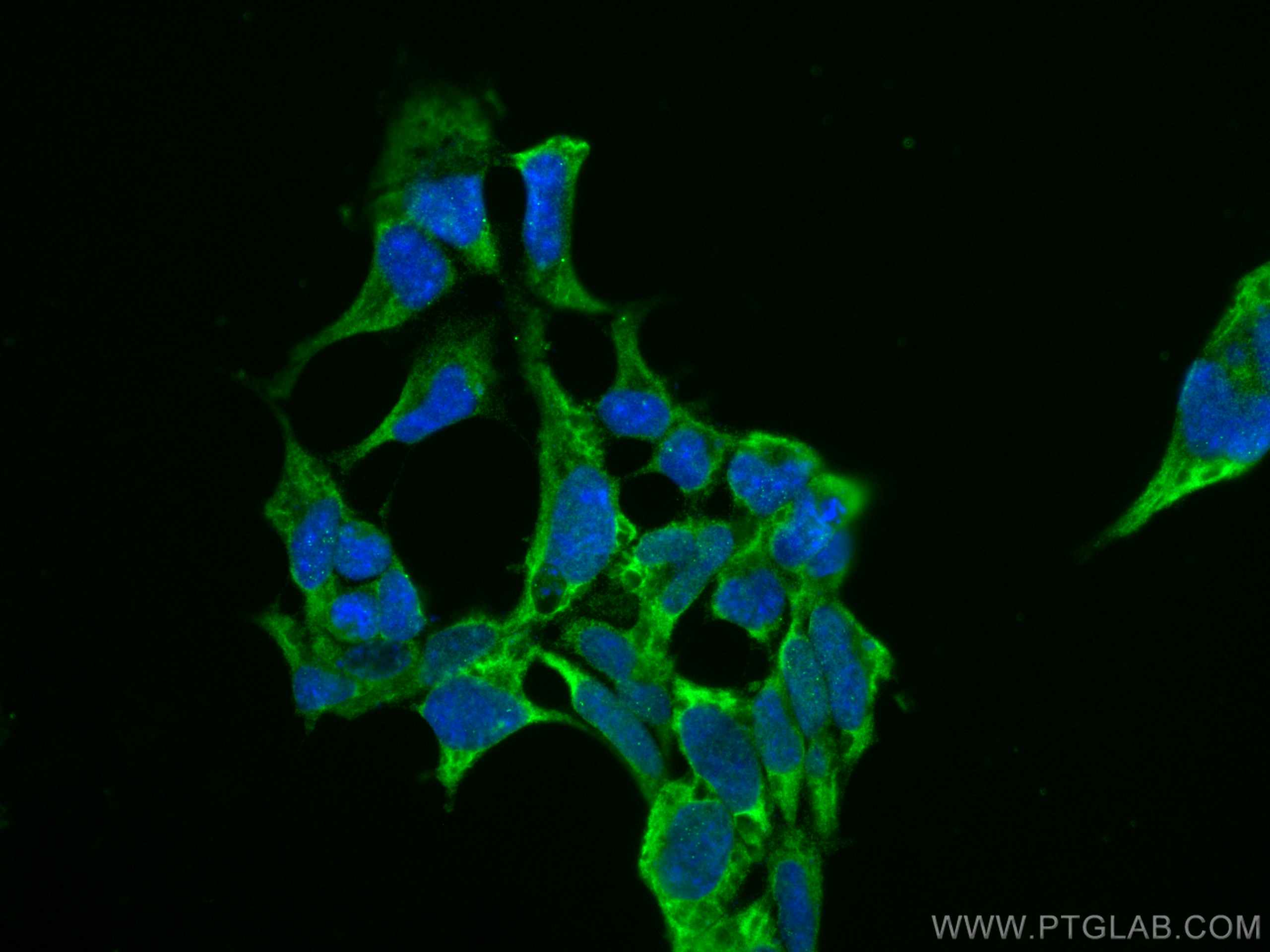Tested Applications
| Positive IF/ICC detected in | HEK-293 cells |
Recommended dilution
| Application | Dilution |
|---|---|
| Immunofluorescence (IF)/ICC | IF/ICC : 1:50-1:500 |
| It is recommended that this reagent should be titrated in each testing system to obtain optimal results. | |
| Sample-dependent, Check data in validation data gallery. | |
Product Information
CL488-66533 targets AP5Z1/SPG48 in IF/ICC applications and shows reactivity with Human, rat samples.
| Tested Reactivity | Human, rat |
| Host / Isotype | Mouse / IgG1 |
| Class | Monoclonal |
| Type | Antibody |
| Immunogen |
CatNo: Ag26961 Product name: Recombinant human KIAA0415 protein Source: e coli.-derived, PET28a Tag: 6*His Domain: 260-364 aa of BC037399 Sequence: TLDTDDRSEQEGSTLSVISATSSAGRLLPPRERLREVAFEYCQRLIEQSNRRALRKGDSDLQKACLVEAVLVLDVLCRQDPSFLYRSLSCLKALHGRVRGDPASV Predict reactive species |
| Full Name | KIAA0415 |
| Calculated Molecular Weight | 807 aa, 88 kDa |
| Observed Molecular Weight | 88 kDa, 160 kDa |
| GenBank Accession Number | BC037399 |
| Gene Symbol | AP5Z1/SPG48 |
| Gene ID (NCBI) | 9907 |
| RRID | AB_2919340 |
| Conjugate | CoraLite® Plus 488 Fluorescent Dye |
| Excitation/Emission Maxima Wavelengths | 493 nm / 522 nm |
| Form | Liquid |
| Purification Method | Protein G purification |
| UNIPROT ID | O43299 |
| Storage Buffer | PBS with 50% glycerol, 0.05% Proclin300, 0.5% BSA, pH 7.3. |
| Storage Conditions | Store at -20°C. Avoid exposure to light. Stable for one year after shipment. Aliquoting is unnecessary for -20oC storage. |
Background Information
AP5Z1, also known as SPG48 and KIAA0415, is a part of AP-5. Biallelic mutations in the AP5Z1 gene encoding the AP5Z1 subunit have been described in a small number of patients with hereditary spastic paraplegia (HSP). AP5Z1 physically interacts with other HSP proteins and that patient cells are sensitive to DNA damaging drugs.
Protocols
| Product Specific Protocols | |
|---|---|
| IF protocol for CL Plus 488 AP5Z1/SPG48 antibody CL488-66533 | Download protocol |
| Standard Protocols | |
|---|---|
| Click here to view our Standard Protocols |




